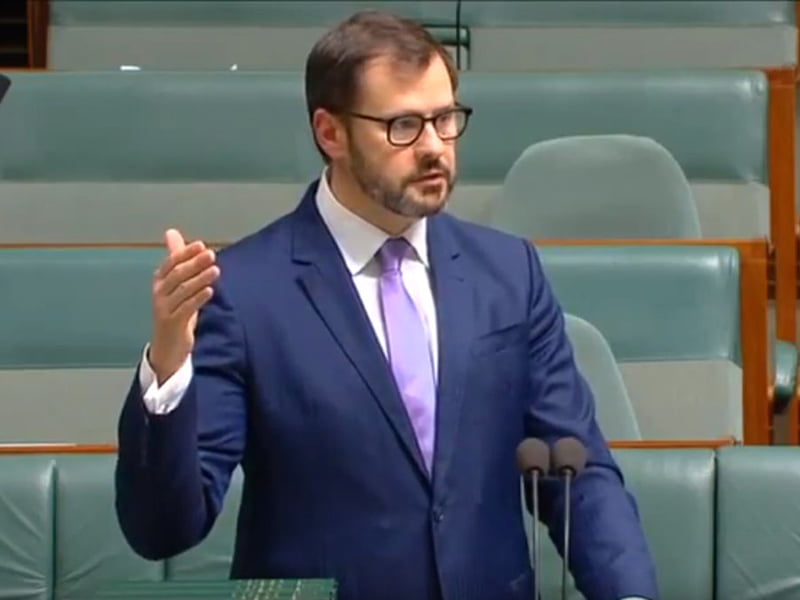The federal budget did not provide a clear direction or funding path for future of work issues in preparing the Australian workforce for digital disruption, according to shadow minister for the digital economy Ed Husic.
Labor would unveil a series of key policies addressing this area in the coming months, with Mr Husic saying this should be the major focus of innovation and technology strategic planning.
In response to last week’s budget, Mr Husic said he was concerned about the impact of cuts to ASIC on FinTech reforms that are in the works, and a general lack of focus on the innovation agenda that was launched in 2015 by Prime Minister Malcolm Turnbull.

“The government has pretty much not even tried to respond to the longstanding claim that they’ve given up on innovation. What a stark change from where we were just on three years ago,” Mr Husic told InnovationAus.com.
The government has emphasised the tech spending that was featured in the budget, including $2.4 billion towards growing Australia’s research, science and technology capabilities.
This included a $1.9 billion research infrastructure investment plan, the Australian Technology and Science Growth Plan, $260 million for GPS technologies and $20 million for businesses in Asia.
The government also allocated $26 million for the establishment of a national space agency, along with $15 million for an investment fund.
“We are investing in our great ideas to grow existing businesses as well as create new ones, because growing these businesses create more jobs for all Australians Innovation Minister Michaelia Cash said.
“Everyone, from our entrepreneurs to our leading scientists, from our farmers to our baristas, will be able to share in the opportunities created by science, technology and innovation,” she said.
But Mr Husic said the government isn’t putting in place the necessary policies to ensure Australians have the skills needed to prepare for the upcoming digital transformation of the country’s workforce.
“The biggest thing that comes out, and what we need to focus on, is skills. An overwhelming number of people say we need to build the digital capability of the workforce to address the skills shortages that have been nagging us for a while, and find a pathway to sustainable employment,” he said.
Mr Husic pointed to reduced funding for TAFEs in the budget, with unions claiming that spending on vocational education will decrease by nearly 10 per cent in the next year and a further 2.1 per cent by 2021 following the cutting of the National Partnership Agreement for Skills Reform.
In his budget response, opposition leader Bill Shorten pledged to scrap upfront fees for 100,000 TAFE students who “choose to learn the skills that Australia needs”.
“Skills has to be the focus and that’s what we’re concentrating a lot on, but how can you get there if you’re actively cutting support and investment in schools, TAFE and universities like this government is?” Mr Husic said.
“TAFE will increasingly become the go-to platform for skills development and more important for skills refreshment. And we’re under-investing based on what the government is doing in this area.”
The government has said that its national research infrastructure investment plan would benefit universities and students, with funding for cutting-edge technologies needed for new innovations.
It also included nearly $190 million in the budget for the More Choices for a Longer Life Package, which inlcuded initiatives to help older Australians improve their skills and explore new career opportunities.
Mr Shorten’s budget reply last week was also criticised by the government for a lack of focus on science and technology, with Senator Cash saying he had “overlooked” these sectors.
“Shorten overlooked research, science and technology. We have a plan for a stronger economy that invests in science, helps business grow and creates jobs,” senator Cash tweeted last week.
But Mr Husic said Labor has been supporting those issues for a number of years.
“The reality is that Labor has been championing this issue for years about using innovation to strengthen the economic performance of a nation. We have a digital economy portfolio that the Coalition hasn’t even bothered to set up itself, and which sits within the Treasury portfolio,” he said.
Mr Husic said a number of announcements would be made on tech skills and jobs in the lead up to the next federal election.
This would include Labor’s response to the government’s major changes to the research and development tax incentive that was revealed in the federal budget.
“We’ve been talking with startups and other stakeholders about what they were hoping would come out of it for the startup community. We’re still talking to the businesses that are concerned about the changes, and we’ll make our position clear in the coming weeks,” Mr Husic said.
Labor also deserves some of the credit for other major tech spending in the budget, including nearly $30 million for AI and machine learning capabilities and $700,000 to investigate the use of blockchain in government, Mr Husic said.
“We argued that the government should be taking a lot more of an active involvement in the application of AI.”
“Last year I argued they could take a leadership role in examining the boundaries for application of AI, because no-one had been doing the thinking about that. Now we see in the budget that they’ve taken up our idea, which should be applauded,” he said.
“A few months ago I spoke about the need for the DTA to be the central point of thinking around blockchain in government, and again it’s great to see this budget has picked up this suggestion.
“But I noticed some concern by people in the sector questioning whether the $700,000 allocation is enough. We’ll keep talking with people, but it’s a start.”
Do you know more? Contact James Riley via Email.

